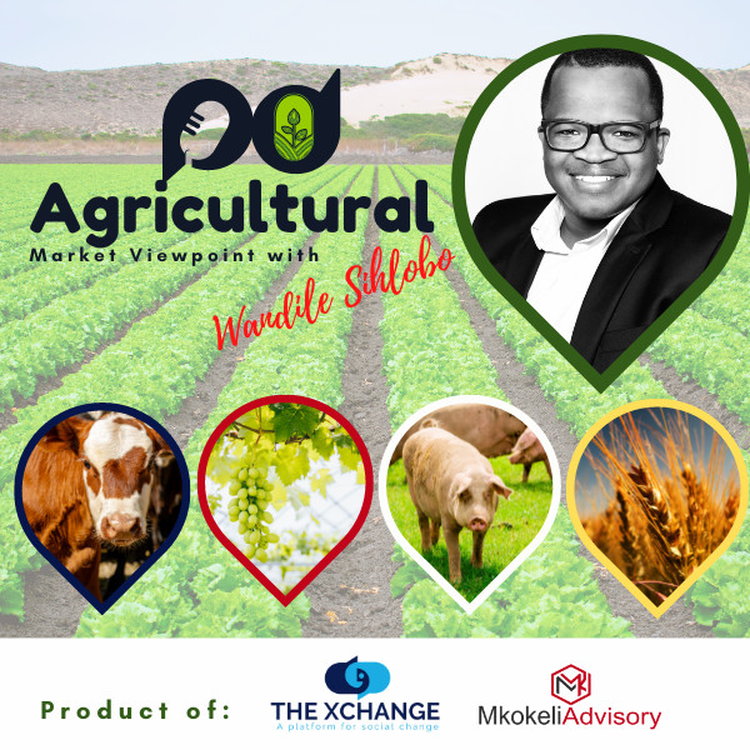
Africa is an important market for SA agriculture
Loading player...
Although I continue to argue that South Africa should expand its agricultural export markets to new frontiers such as India, China, Bangladesh, Saudi Arabia, and South Korea, amongst others, the export drive should not be at the expense of the existing markets.
We should actively engage with existing markets to promote further growth of exports of South African agricultural products. The engagement needs not only to focus on the EU and Asia, both crucial regions for our export growth, but also on the rest of the African continent.
The African continent remains the largest export market for South Africa's agriculture. In the record agricultural exports of US$12,8 billion in 2022, the African continent accounted for 37%. Importantly, this was not an anomaly. The continent has accounted, on average, for 38% of South Africa's agricultural exports by value per annum over the past five years.
Unlike the other regions South Africa exports to, where the composition of products is predominantly fruits, beef, wool and wine, maize is the leading export product in the African continent. Other products exported to the rest of the African continent include apples, wheat, animal feed, prepared foods, wine, fruit juices, soybean oil, sunflower oil, alcoholic beverages, and soybean oilcake.
The leading markets were Botswana, Namibia, Mozambique, Zimbabwe, Lesotho, Eswatini, Zambia, Angola, Nigeria, and Mauritius. Except for Nigeria, these markets are within the Southern African Development Community's Free Trade Area, which has benefited South Africa greatly. Moreover, these markets' infrastructure and proximity advantage contributes to the concentration of South African agricultural exports to this region.
As we advance this trade relationship with the Southern African Development Community and the rest of the African continent, there will need to be various industry and government engagements to keep warm relations.
Such an approach would help to avoid erroneous policy decisions, such as what Namibia and Botswana did in 2022 by blocking vegetable imports from South Africa. This policy action negatively affected the South African farmers that had increased production in anticipation of the regional demand.
Simultaneously, the consumers in Botswana and Namibia were also left with little choice as their typical supplies were suddenly out of the shelf. Through close collaboration with the regional business community and government, we would address trade concerns without drastic steps by the neighbouring countries, which understandably want to prioritise the interests of local producers and consumers.
These are issues we cover in this week’s podcast segment.
My writings on agricultural economic matters are available on my blog: https://wandilesihlobo.com/
Podcast production by: Lwandiso Gwarubana, Richard Humphries, and Sam Mkokeli
We should actively engage with existing markets to promote further growth of exports of South African agricultural products. The engagement needs not only to focus on the EU and Asia, both crucial regions for our export growth, but also on the rest of the African continent.
The African continent remains the largest export market for South Africa's agriculture. In the record agricultural exports of US$12,8 billion in 2022, the African continent accounted for 37%. Importantly, this was not an anomaly. The continent has accounted, on average, for 38% of South Africa's agricultural exports by value per annum over the past five years.
Unlike the other regions South Africa exports to, where the composition of products is predominantly fruits, beef, wool and wine, maize is the leading export product in the African continent. Other products exported to the rest of the African continent include apples, wheat, animal feed, prepared foods, wine, fruit juices, soybean oil, sunflower oil, alcoholic beverages, and soybean oilcake.
The leading markets were Botswana, Namibia, Mozambique, Zimbabwe, Lesotho, Eswatini, Zambia, Angola, Nigeria, and Mauritius. Except for Nigeria, these markets are within the Southern African Development Community's Free Trade Area, which has benefited South Africa greatly. Moreover, these markets' infrastructure and proximity advantage contributes to the concentration of South African agricultural exports to this region.
As we advance this trade relationship with the Southern African Development Community and the rest of the African continent, there will need to be various industry and government engagements to keep warm relations.
Such an approach would help to avoid erroneous policy decisions, such as what Namibia and Botswana did in 2022 by blocking vegetable imports from South Africa. This policy action negatively affected the South African farmers that had increased production in anticipation of the regional demand.
Simultaneously, the consumers in Botswana and Namibia were also left with little choice as their typical supplies were suddenly out of the shelf. Through close collaboration with the regional business community and government, we would address trade concerns without drastic steps by the neighbouring countries, which understandably want to prioritise the interests of local producers and consumers.
These are issues we cover in this week’s podcast segment.
My writings on agricultural economic matters are available on my blog: https://wandilesihlobo.com/
Podcast production by: Lwandiso Gwarubana, Richard Humphries, and Sam Mkokeli

